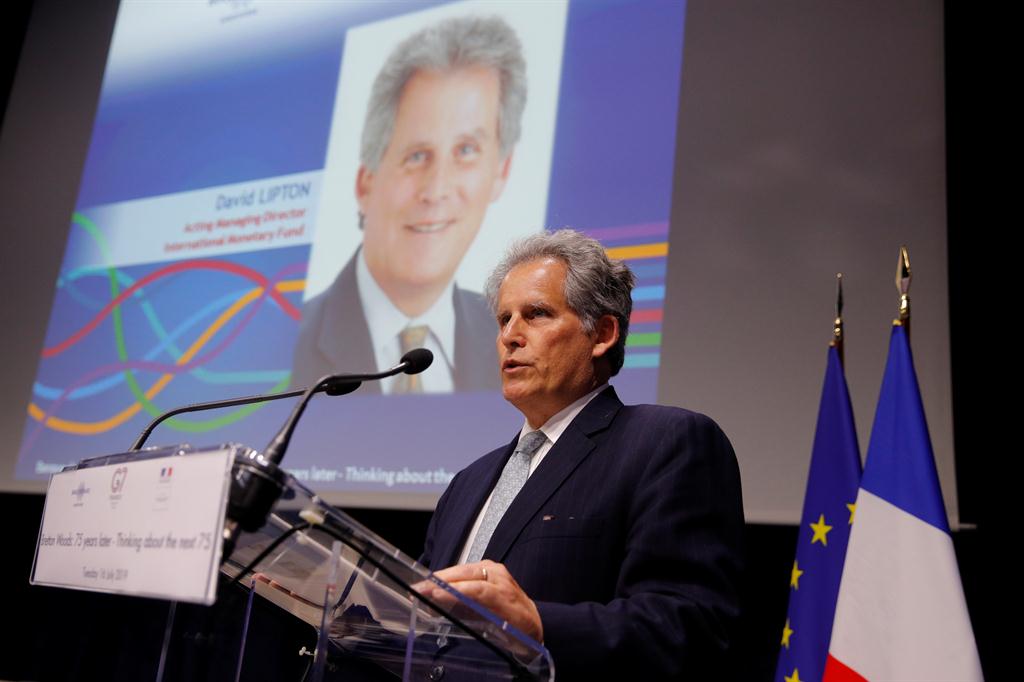Lipton: Capitalism needs 'course correction'
The changes from trade, globalisation and technology are fuelling rising anger, political polarisation and populism, according to the acting chief of the IMF.
Paris - Rising anger at the increasing inequality blamed on globalisation calls for a change of directions, acting IMF chief David Lipton said Tuesday.
But he said, that does not mean there is an "inherent flaw in capitalism," Lipton said in a speech celebrating the 75th anniversary of the creation of the International Monetary Fund and World Bank.
While capitalism "has been the engine behind so much of the success we have experienced," Lipton said "it is an imperfect system in need of a course correction."
He noted that much of the anger is because of concerns about the fairness of the system.
"Part of the problem is the rise of excessive inequality," he said. "Although poverty rates have declined worldwide since 1980, the top tenth of the top one percent worldwide has garnered roughly the same economic benefits that have accrued to the bottom 50%."
Governments should respond by increasing spending to address inequalities, and close corporate tax loopholes and work to prevent corporations from shopping for countries with lower taxes, he said.
The changes from trade, globalisation and technology are fuelling "rising anger, political polarisation and populism", Lipton warned.
And while allies at the end of World War II gathered at the Bretton Woods conference to create the institutions that would use economic cooperation to prevent future conflicts, "We are at risk of what one could call a reverse Bretton Woods moment." – Nampa/AFP
But he said, that does not mean there is an "inherent flaw in capitalism," Lipton said in a speech celebrating the 75th anniversary of the creation of the International Monetary Fund and World Bank.
While capitalism "has been the engine behind so much of the success we have experienced," Lipton said "it is an imperfect system in need of a course correction."
He noted that much of the anger is because of concerns about the fairness of the system.
"Part of the problem is the rise of excessive inequality," he said. "Although poverty rates have declined worldwide since 1980, the top tenth of the top one percent worldwide has garnered roughly the same economic benefits that have accrued to the bottom 50%."
Governments should respond by increasing spending to address inequalities, and close corporate tax loopholes and work to prevent corporations from shopping for countries with lower taxes, he said.
The changes from trade, globalisation and technology are fuelling "rising anger, political polarisation and populism", Lipton warned.
And while allies at the end of World War II gathered at the Bretton Woods conference to create the institutions that would use economic cooperation to prevent future conflicts, "We are at risk of what one could call a reverse Bretton Woods moment." – Nampa/AFP





Kommentar
Allgemeine Zeitung
Zu diesem Artikel wurden keine Kommentare hinterlassen